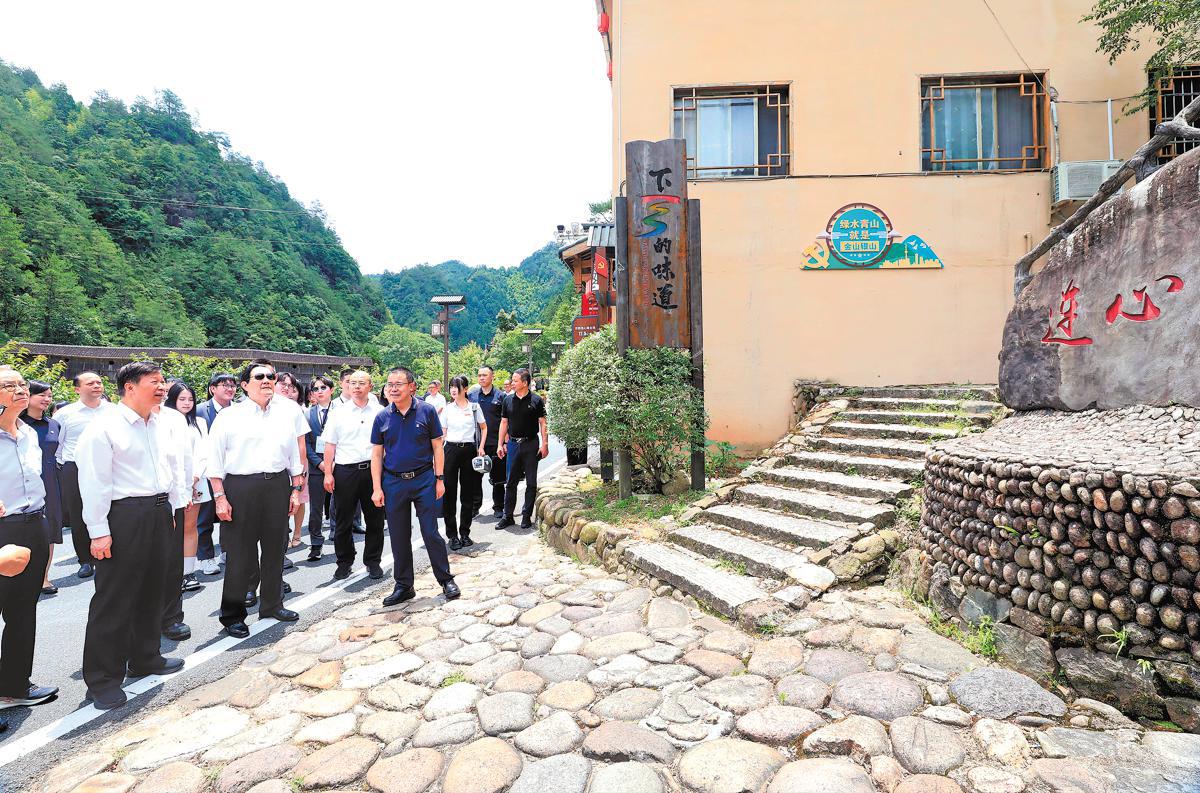Cross-Strait bonds too strong to break apart
Taiwan people continue to arrive on mainland, defying DPP's restrictions

Editor's note: The Taiwan question is a key focus for China and the international community. China Daily is publishing a series of reports to track hot Taiwan-related topics and address disinformation from the Democratic Progressive Party administration.

A deep emotional bond rooted in shared heritage continues to draw people from Taiwan to the Chinese mainland for exchanges and opportunities, despite obstacles imposed by the island's Democratic Progressive Party authorities seeking to sever cross-Strait ties.
Ma Ying-jeou, former chairman of the Chinese Kuomintang party, is leading a group of students on a mainland visit from June 14 to 27. It is his fourth visit aimed at promoting youth exchanges and easing tensions triggered by the DPP's "pro-independence" stance.
While attending a commemorative ceremony in Tianshui, Gansu province, on Saturday to honor Fu Xi, a legendary ancestor of the Chinese nation, Ma said most people in Taiwan retain a strong belief in Chinese culture and identity.
"Even though Taiwan was colonized by Japan for 50 years, we still insist on being descendants of Yan and Huang and maintain the subjectivity and dignity of the Chinese nation," Ma told reporters.
Yan Di and Huang Di, or the Yan Emperor and the Yellow Emperor, are legendary rulers who are revered as the common ancestors of the Chinese people. Many Chinese people proudly refer to themselves as "descendants of Yan and Huang".
The group will also visit Dunhuang in Gansu and is expected to attend a cross-Strait cultural seminar focused on shared heritage. Another part of the trip will take them along the Hexi Corridor and the ancient Silk Road.
Before arriving in Gansu, the delegation visited Fujian province, where they participated in the 17th Straits Forum in Xiamen on June 15. The annual forum is the largest cross-Strait people-to-people exchange platform, attracting participants from various sectors.
"Whether in language, customs, food or human sentiment, we can feel a lot of resonance, which helps us understand that the connection between the two sides is inseparable," Ma said during the forum's main conference.
Ma noted that the ancestors of many people in Taiwan came from Fujian, and said the connection is not only a historical imprint but also a valuable asset for both sides to protect and develop together.
"No political force can suppress or prevent sincere exchanges between people on both sides of the Strait, let alone block the natural feelings of the Chinese people on both sides who share the same roots and origins," he said.
























